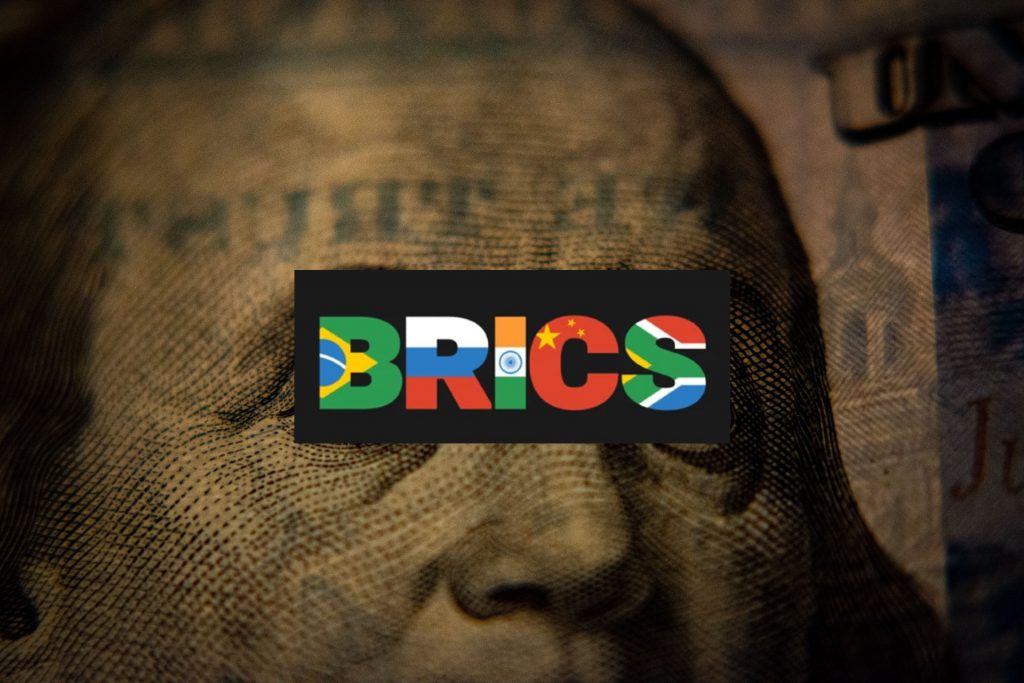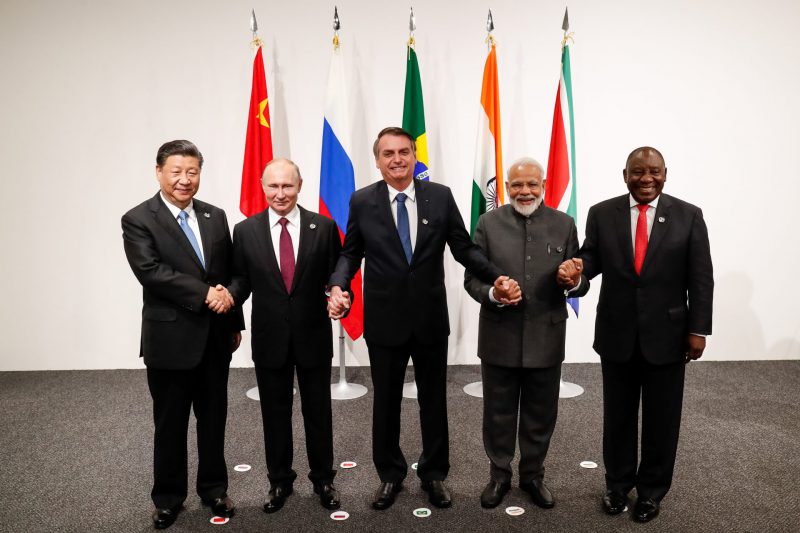The BRICS alliance will launch a new currency in the next summit in August 2023 held in Cape Town, South Africa. The five blocs of nations Brazil, Russia, India, China, and South Africa will combinedly decide the formation of the currency. The yet-to-be-released tender will be pushed into the global stage to settle cross-border transactions among like-minded nations. The goal is to end reliance on the U.S. dollar and usher in a new era in the financial sector.
Even before its launch, around 41 countries have expressed interest to join BRICS and accept the currency. While 19 countries have formally sent applications to join BRICS, the others have informally expressed desires to enter the bloc. South African BRICS ambassador Anil Sooklal confirmed that the alliance could soon expand becoming BRICS+.
Also Read: Europe Might Get Ready To Accept BRICS Currency
BRICS Currency Could Go Global, Dethrone the U.S. Dollar


Leading economist Alexis Habiyaremye from the University of Johannesburg said that the BRICS currency could dethrone the U.S. dollar. The economist said that the U.S. dollar added a burden to the economies of developing countries through debt accumulation. The U.S. pressing sanctions aggravated the situation making their local economies come to a standstill.
Also Read: Saudi Arabia To Challenge U.S. Dollar’s Supremacy by Funding BRICS Alliance
Things could get better with the launch of the currency as the U.S. will have no control over their economies. If the BRICS currency gains widespread acceptance, the U.S. dollar will lose supply and demand on the global stage. The development could make the new tender acceptable and countries could sideline the USD in the coming years.
“In terms of economic weight, The BRICS currency has a real prospect of becoming a global currency if members commit to increasing trade exchange between themselves,” he said. The economist added, “Introducing a new currency if it were to be used effectively and systematically for all trade transactions between BRICS countries, would alleviate the burden on these countries to finance the exorbitant privilege.”





